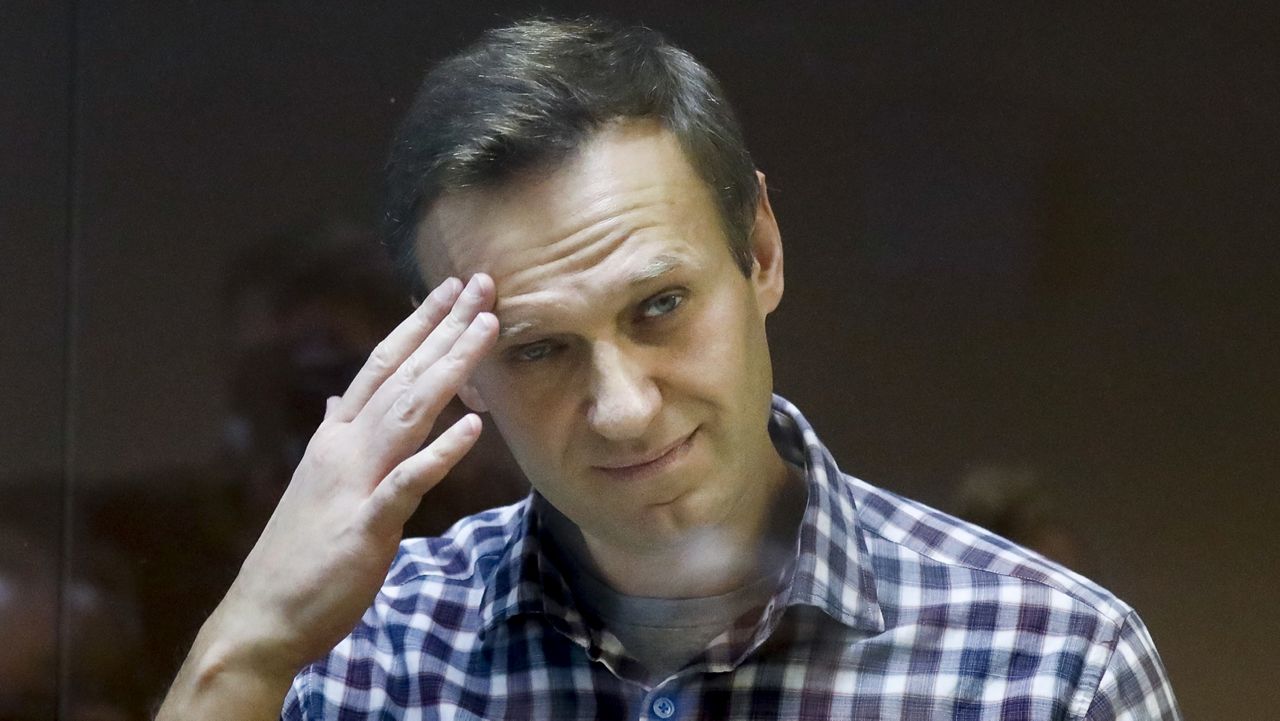The United States issued sanctions on senior Russian officials over the poisoning and detention of opposition leader Alexei Navalny, a senior administration official confirmed to Spectrum News on Tuesday.
In a statement, Secretary of State Antony Blinken said that the United States "has exercised its authorities to send a clear signal that Russia’s use of chemical weapons and abuse of human rights have severe consequences. Any use of chemical weapons is unacceptable and contravenes international norms."
The State Department designated the FSB, the State Research Institute of Organic Chemistry and Technology (GosNIIOKhT), the 33rd Scientific Research and Testing Institute (33rd TsNIII), the 27th Scientific Center, the General Staff of the Armed Forces of the Russian Federation (GRU), and two GRU officers.
The Department of the Treasury also announced sanctions against seven individuals, including Pavel Anatolievich Popov and Aleksei Yurievich Krivoruchko, Deputy Ministers in Russia's Ministry of Defense, Alexander Vasilievich Bortnikov, the Director of the Federal Security Service (FSB), and Igor Victorovich Krasnov, Prosecutor General for the Russian Federation.
Navalny, an outspoken critic of Russian President Vladimir Putin, fell sick in August of 2020 during a domestic flight in Russia and was flown while still in a coma to Berlin for treatment two days later.
Labs in Germany, France, and Sweden, and tests by the Organization for the Prohibition of Chemical Weapons, established that he was exposed to a Soviet-era Novichok nerve agent. Russian authorities have denied any involvement in the poisoning.
Navalny was arrested on Jan. 17 upon returning from Germany, where he spent five months recovering from the nerve agent poisoning.
"The United States has consistently characterized the legal offensive against Mr. Navalny as politically motivated, an assessment shared by our G7 partners and the European Court of Human Rights," Blinken added in his statement. "We reiterate our call for the Russian government to immediately and unconditionally release Mr. Navalny."
His detention sparked street protests across Russia. Police arrested thousands of demonstrators. Authorities have transferred the opposition leader to a penal colony to begin serving a sentence, after what rights groups said was a show trial.
Last month, Navalny was sentenced to 2 1/2 years in prison for violating the terms of his probation while convalescing in Germany. The sentence stems from a 2014 embezzlement conviction that Navalny has rejected as fabricated — and which the European Court of Human Rights has ruled to be unlawful.
These are the first such sanctions against Russia by the Biden administration, which has pledged to confront Putin for alleged attacks on Russian opposition figures and hacking abroad, including of U.S. government agencies and U.S. businesses. Former President Donald Trump had spoken admiringly of Putin and resisted criticism and many proposed penalties of Putin's government.
The sanctions are being levied in conjunction with the European Union, a senior administration official said, which already imposed sanctions against a number of Russian officials, but is expected to announce more.
The Biden administration also announced sanctions for 14 businesses and another enterprise, most of which it said were involved in production of biological and chemical agents.
Tuesday's sanctions would be the first of several steps by the Biden administration to "respond to a number of destabilizing actions," one of the administration officials said.
The Associated Press contributed to this report.



